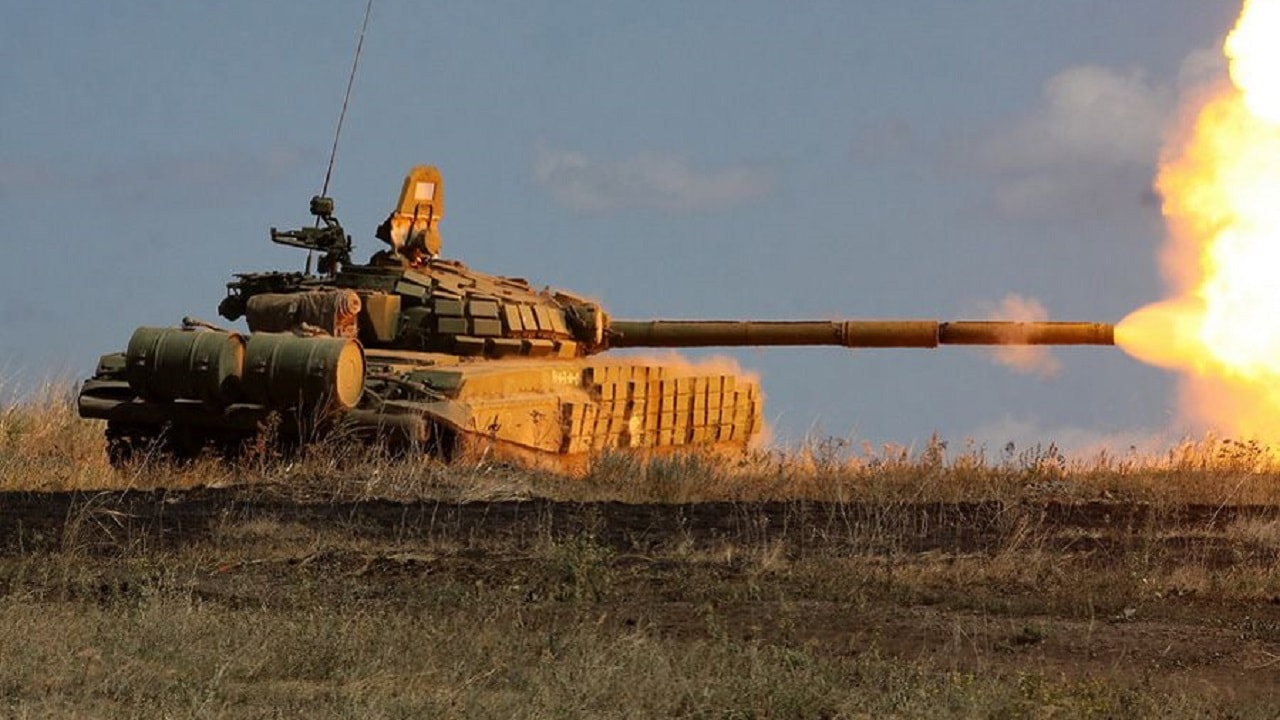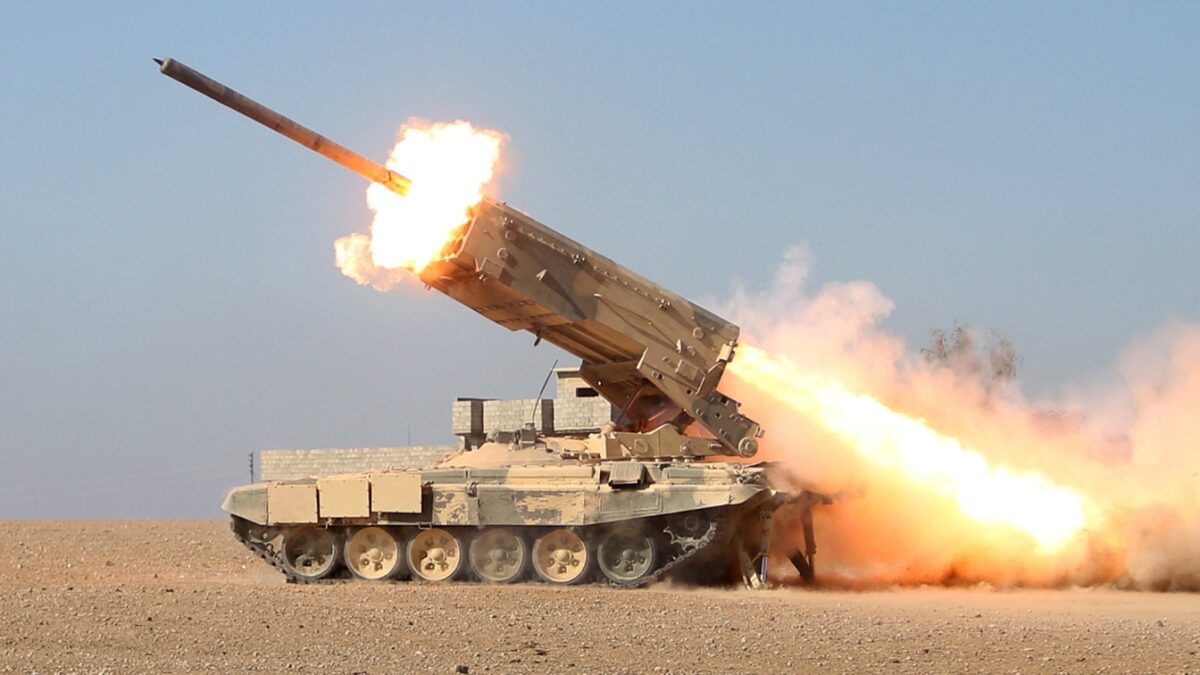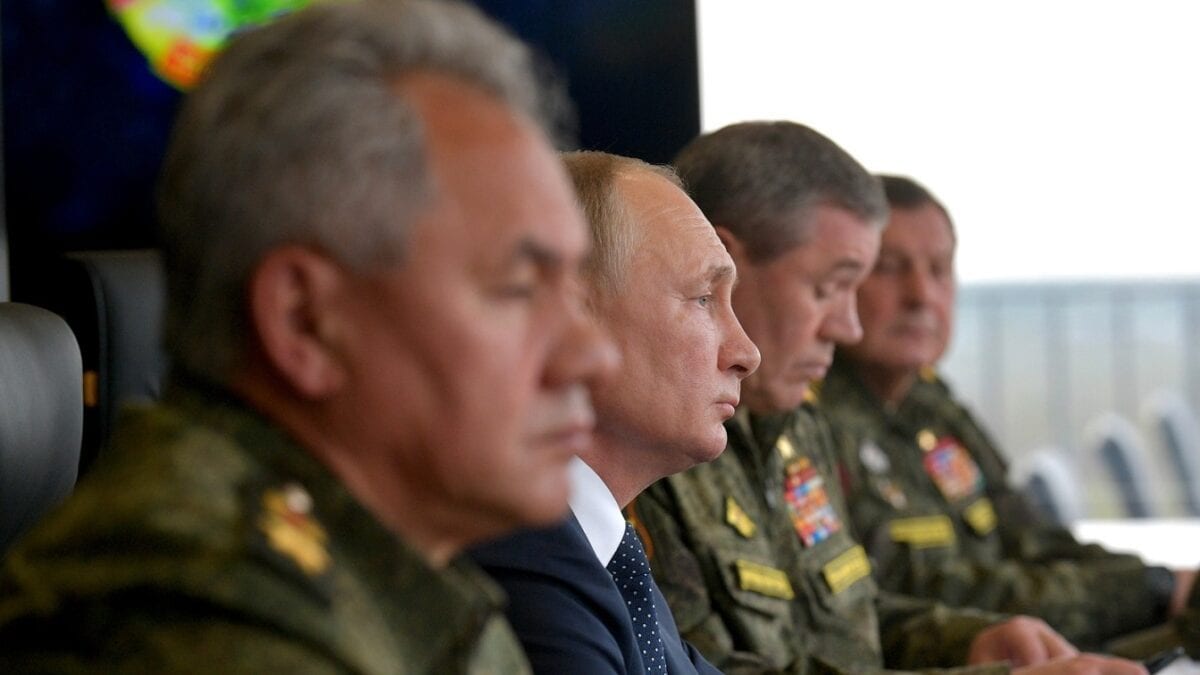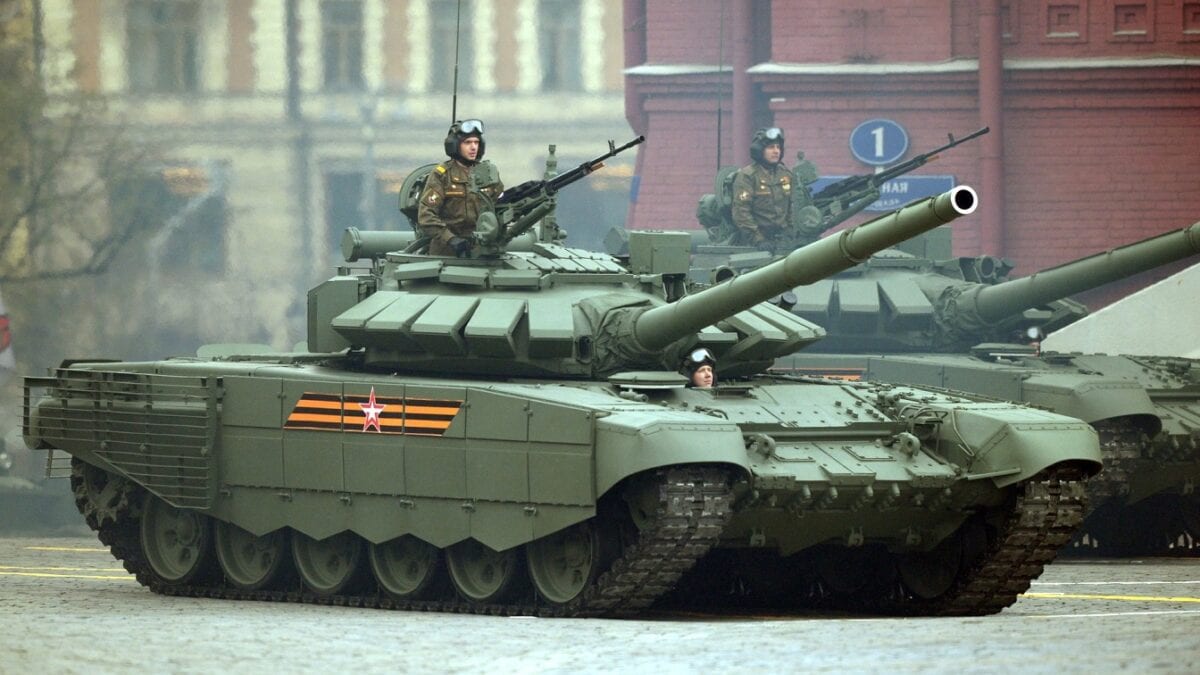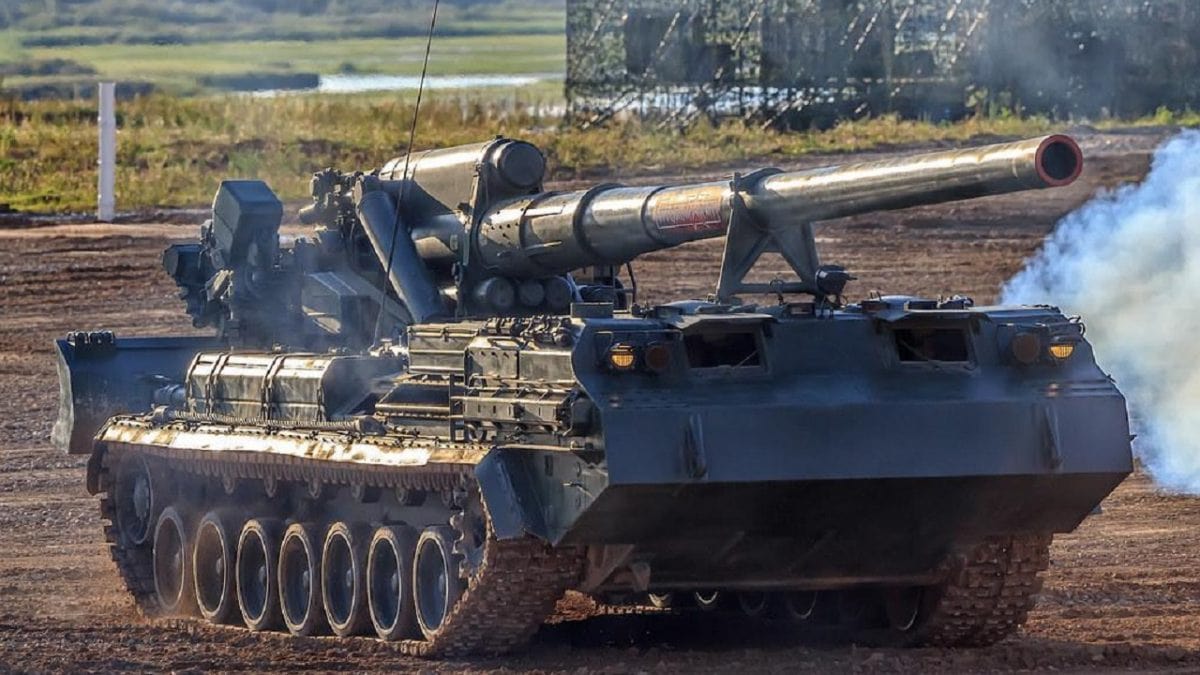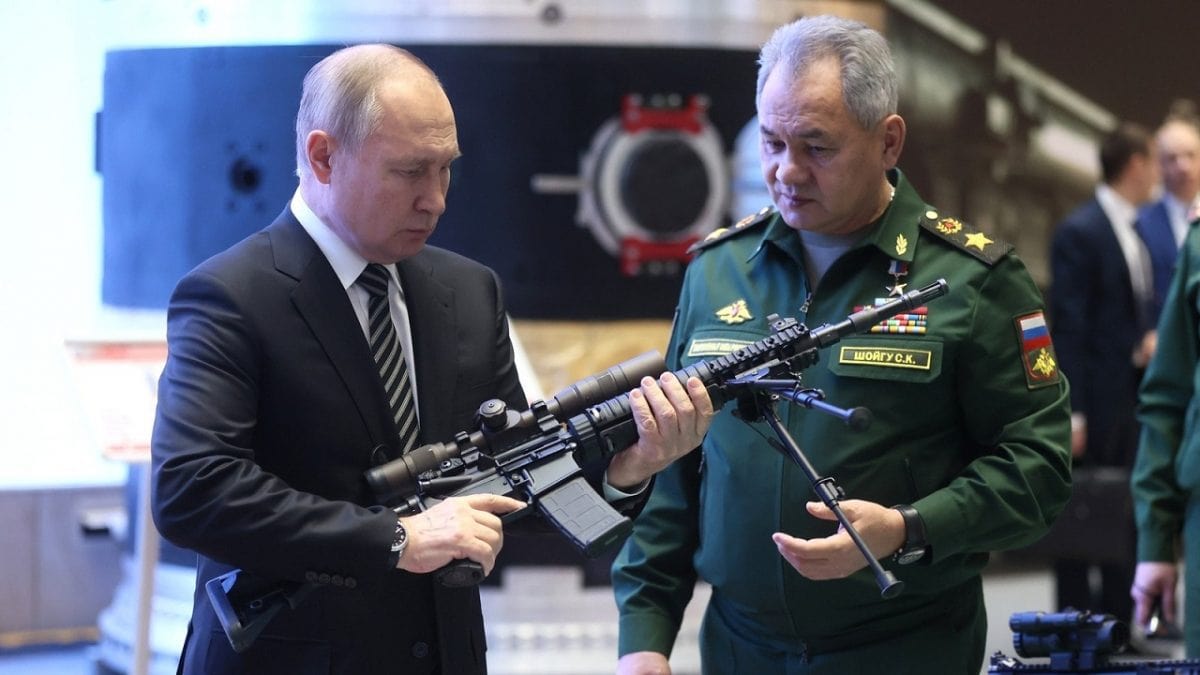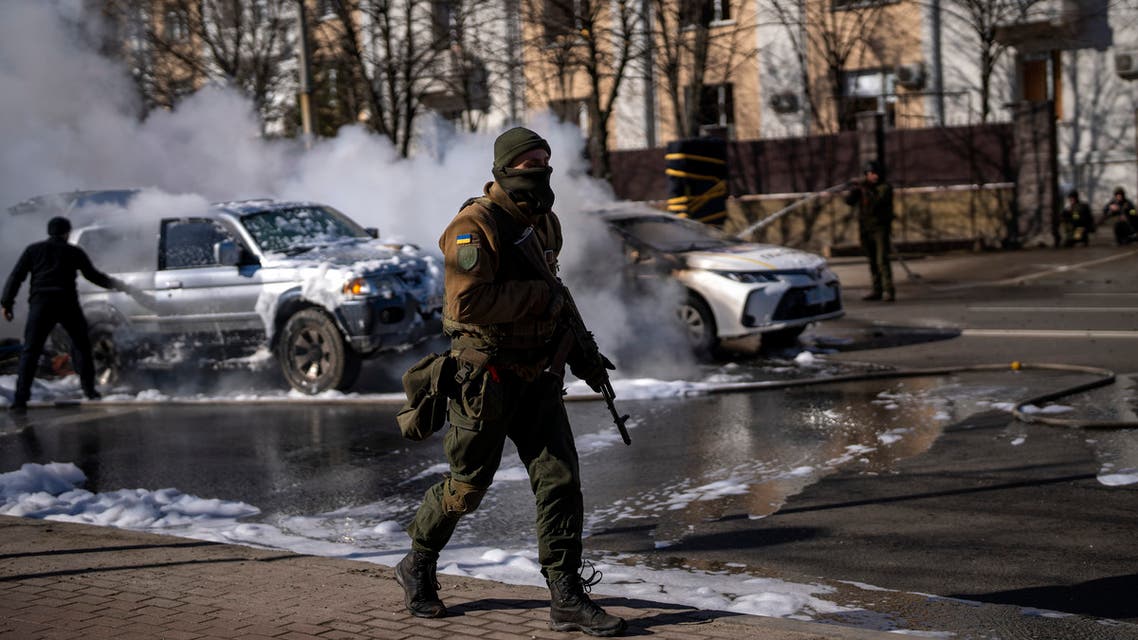February 24, 2022

Ukrainian servicemen stand near an armored personnel carrier BTR-3 on the northwest of Kyiv on February 24, 2022
Nasim Ahmed
Nasimbythedocks
February 24, 2022 at 3:27 pm
352Shares
I have been watching the Russia-Ukraine crises unfold while reading Ben Rhodes' new book, "After the Fall: Being American in the World We've Made". It is riveting, essential reading for anyone who wants to get a deeper understanding of Russian aggression and, more generally, the rise of authoritarianism around the world.
Why is democracy in retreat and autocracy in the ascendency? And why now? It is a question baffling many and has become a theme of many recent books. In Rhodes' quest for an answer, the former White House speechwriter who served as a deputy National Security Adviser for US President Barack Obama from 2009-2017, travels around the world interviewing dissidents pushing back against the tide of authoritarianism. He observes the plight of frail societies, where the battle between democracy and autocracy has taken centre stage in recent years, including countries like Hungary, Russia, Myanmar and the one country you would least likely to expect in a book about the rise of authoritarianism, the US. In each of these countries, democracy has been in retreat, if not routed completely.
The book, though, could just as easily have included the many dozens of other states undergoing a similar downhill slide into illiberal democracy. India, for instance. Under the government of the far-right BJP, the country's long tradition of democracy has retreated to give way to an ugly form of nationalism that is deeply hostile towards Muslims.
In each of the cases, there is a familiar pattern, an authoritarian playbook if you like, that is masterfully deployed to turn democracies into autocracies. Its main features include fostering a sense of everlasting victimhood; promotion of blood and soil ethnic nationalism; a rejection of civil society and globalisation; tapping into people's genuine outrage over the excesses of globalisation and inequality; daily attack and dehumanisation of the other, who in most instances, are Muslims.
READ: The importance of Turkiye's oversight of warship movements as possible Russia, Ukraine war heats up
With the playbook at hand to consolidate the slide into authoritarianism, all it takes is for a demagogue like Donald Trump, Israel's Benjamin Netanyahu, India's Narendra Modi and Saudi's Mohammed Bin Salman, to cleverly employ the techniques and offer a sense of belonging and cast themselves as the protectors of the people.
As the subtitle of the book suggests – Being American in the World We've Made– the original sin of the current retreat of democracy lies at the door of the US. As the sole superpower following the collapse of the Soviet Union in 1991, America's behaviour has been the most crucial factor to this growing phenomenon. Rhodes himself powerfully highlights America's authoritarian turn by revealing that the administration of Donald Trump had hired an Israeli private intelligence agency to orchestrate a "dirty ops" campaign against him and other senior members of the Obama team. The Israeli agents specifically targeted Rhodes. The idea, apparently, was to smear Rhodes and his colleagues as corrupt in order to discredit the Iran nuclear deal.
For Rhodes, Trump's authoritarian streak is not, however, the cause of US descent, but a symptom of a much uglier underbelly of American democracy. Rhodes goes to great lengths to explain this. He traces the slide to the 9/11 attacks, followed by the invasion of Iraq, in pursuit of non-existent weapons of mass destruction. Both "cracked open the facade that elites in the United States knew what they were doing" and called into question "why Americans were the stewards of world order." The colossal mishandling of Iraq – and, subsequently, Afghanistan – was followed by the 2008 global financial crises, triggered by predatory lending by American banks. Whatever confidence was left in the US-led global system was shattered. Countries across Europe and elsewhere were exposed to the excesses of globalisation in a way they had never been. Inequality was pushed to its worst levels in recent history. The vast majority saw themselves as being abandoned and let down by their governments, while rich elites got bailed out.

Russian President Vladimir Putin's recognised two breakaway territories in Eastern Ukraine – Cartoon [Sabaaneh/Middle East Monitor]
These seismic events played out under a culture of international rule breaking by the US and its allies. It chipped away at the legitimacy of so-called rules-based "liberal international order" installed by the US in the aftermath of the Second World War.
In summary, the international order established by the victorious allies set the framework of liberal political and economic rules. They are embodied in a network of international organisations and regulations such as the UN, International Monetary Fund and various other multinational institutions. The rules are shaped and enforced by the most powerful nations, usually the US. The idea, in theory at least, was to end the winner takes all global systems of the age of empires and colonialism and establish a new one where every nation can prosper through global free trade under a security umbrella provided by the US.
The slow but inevitable unravelling of this system has been both the most critical and the most consequential development of the past two decades. One only needs to look at the way the US and its western allies have indulged Israel's ongoing occupation and takeover of Palestine to see how the so-called liberal rules-based order has been undermined by the very people that claim to be its protector. Why would the likes of Modi and Putin respect the rightful territorial claims of others in occupied Kashmir or Ukraine, if Israel's annexation of the Golan Heights, Jerusalem and West Bank gets America's seal of approval? Why would autocrats and dictators in the Middle East and elsewhere care about human rights, when the US is willing to accept the apartheid practices of its main ally, Israel?
READ: The crisis in Ukraine and its implications for the Arab countries
Instead of creating a world "safe for democracy" as US President, Woodrow Wilson, remarked at the dawn of the 20th century, setting America on its path of missionary zeal in defence of liberal internationalism, its disastrous policies in the Middle East and around the world have, instead, created a world safe for autocracy. There is no incentive for the likes of Mohammed bin Salman, Egypt's Abdul Fateh Al- Sisi, Putin, Hungary's Victor Orban or any of the other autocrats to want to play by the rules. America's indulgence of rule breaking by its allies has reversed the incentive structure of the global system, where it pays to be a rule breaker in the international system, let alone be punished.
Perhaps America's greatest gift to autocrats is a version of a state in which, as Rhodes says "the machinery of government has been redesigned to fight an endless war at home and abroad". The war on terror allowed for the installation of a highly securitised infrastructure and a deeply racist discourse for the US to embark on its two-decade-long seemingly never-ending wars. Across the world autocrats exploit the threat of "Muslim terrorism" to justify gross human rights abuse and subvert democracy. Needless to say, fearmongering about terrorism and conspiracy theories about "creeping sharia" have taken deep roots in culture and society, not just in the US, but also across the world.
The likes of Chinese President Xi Jinping have adopted the US War on Terror template, as have many regimes in the Middle East. In 2014, when Uyghur terrorists took dozens of lives in the autonomous territory of Xinjiang, state media referred to the attacks as "China's 9/11." Xi urged Chinese officials to follow the American post-9/11 script, setting in motion a crackdown that would eventually lead to a million Uyghurs being thrown into concentration camps.
It is one of the ironies of history that American incompetence and, some would say, hubris over the past two decades has become central to the story about the retreat of democracy and the rise of autocracy. That, though, is the reality. Maybe we are in the twilight of democracy, as some have suggested. The question for America is, can the most powerful country in history founded on the idea of freedom and equality slow the slide towards a world made safe for autocracy?
The views expressed in this article belong to the author and do not necessarily reflect the editorial policy of Middle East Monitor.






